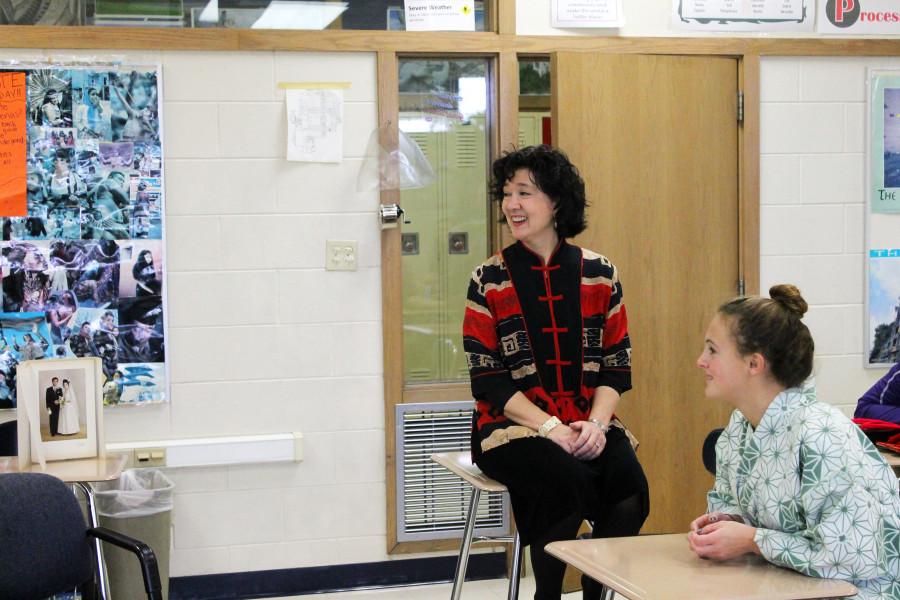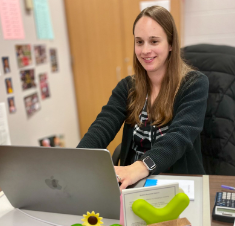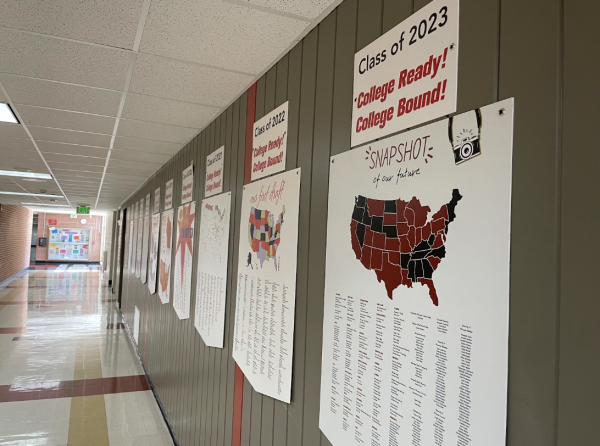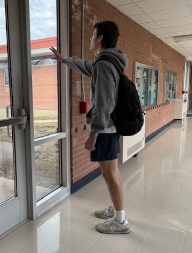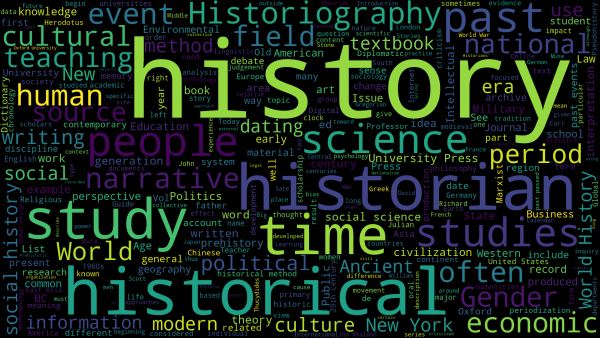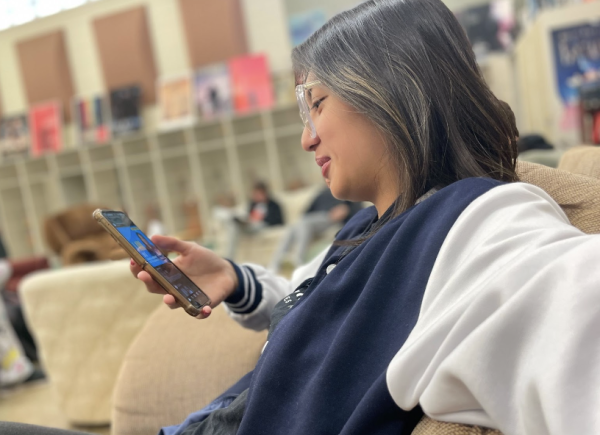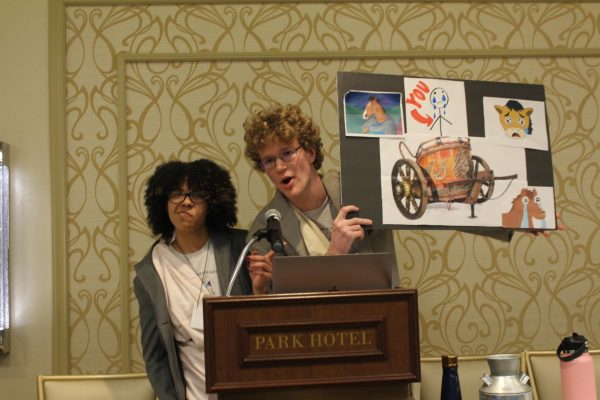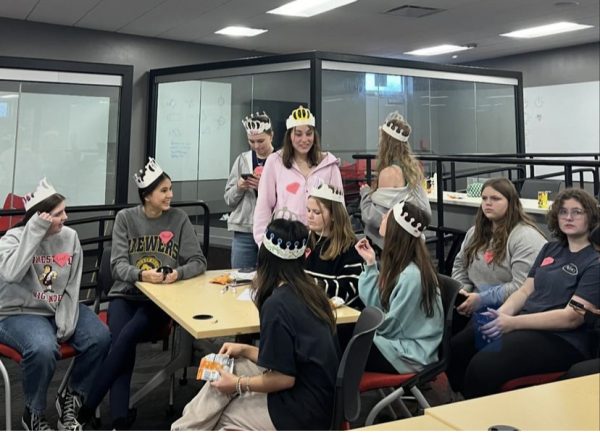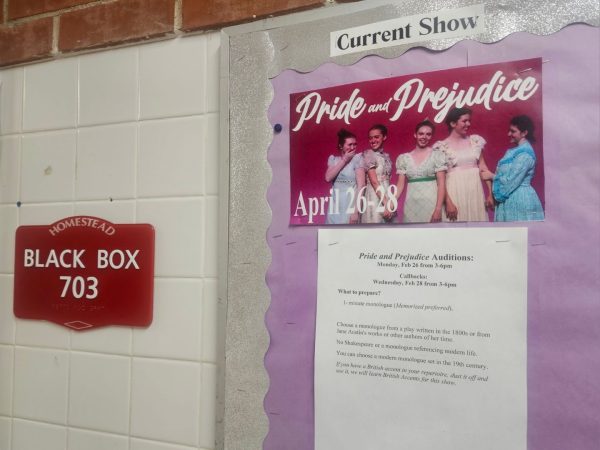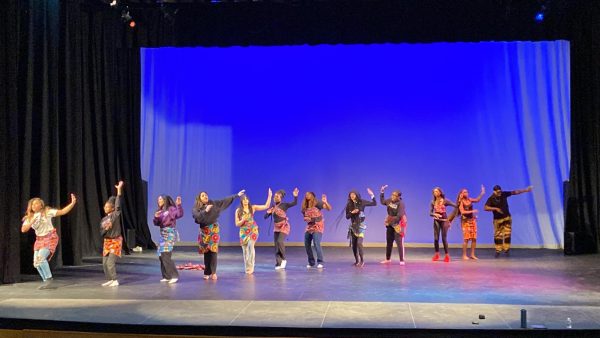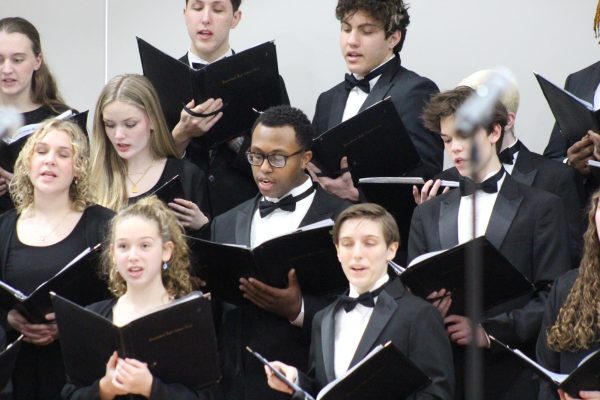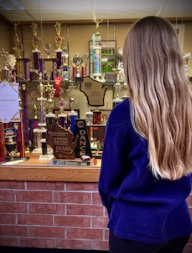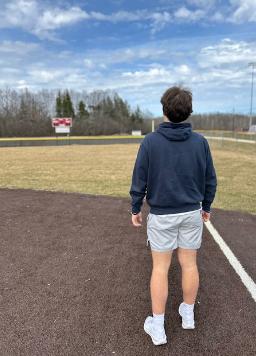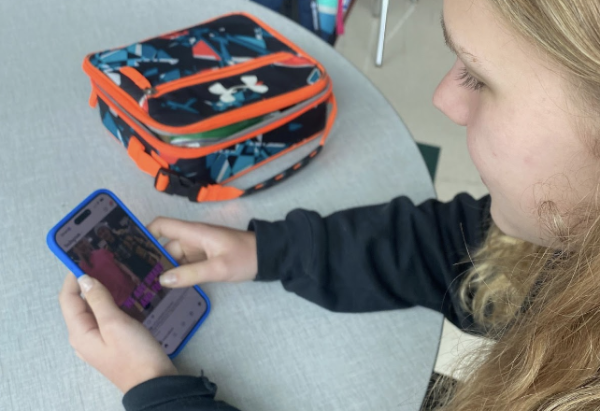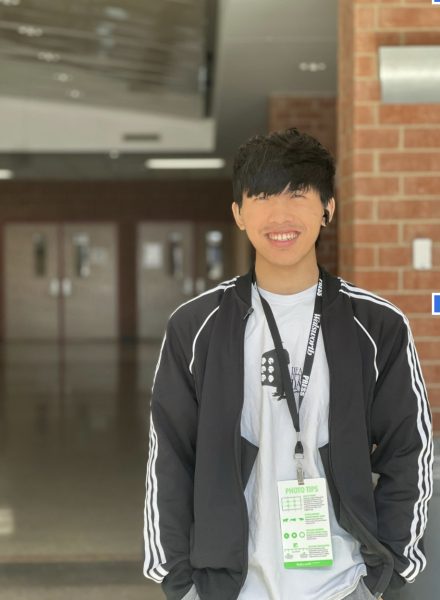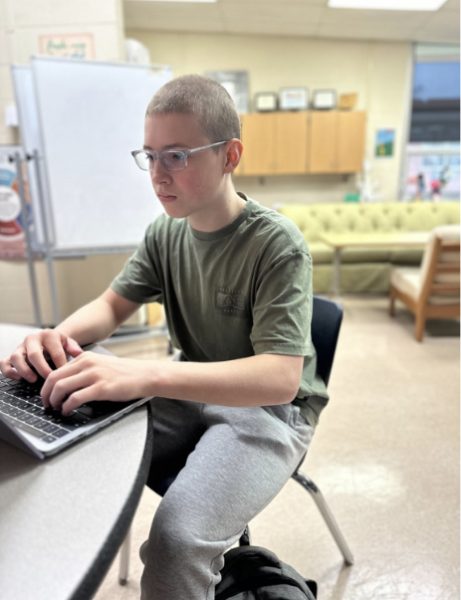The ‘smile file’: Ms. Grimm looks to students’ letters for inspiration
Ms. Grimm, social studies teacher, laughs along with her students during a lesson.
Thirty-five years — three and a half decades — later, and, social studies teacher, Ms. Anna Mae Grimm’s, love of teaching remains. While she enjoys learning alongside her students as history unfolds, the best part of teaching, according to Ms. Grimm, is, “when I can metaphorically see the lightbulb go off. I see the connection. I love that moment; I love seeing it on their faces.”
While Ms. Grimm’s teaching sparks the minds of students sitting in her classroom, the lessons students learn in her class often impact them years later. According to Ms. Grimm, “You have to be patient in this profession. Your impact may not come today, it may not even come this year, it may not even come while they are still in high school, but somewhere down the line, that connection will be made, and that’s when your real reward will come. You don’t see it and you don’t hear about it.”
However, some of the standout moments in Ms. Grimm’s career stem from letters written by former students, which are often sent many years after the student occupies a seat in her classroom. The letters written by previous students, according to Ms. Grimm, “keep [her] going,” and “when a student does write back and says, ‘Wow, I just have to say, thank you,’ those are few and far between, and I’ve kept them. I’ve kept them all.”
Those letters make up her “smile file,” and they remind Ms. Grimm of the impact she hopes to make in all students’ lives, which, as Ms. Grimm said, is to teach students to be “lifelong learners, and realize there is life beyond them.”
One of the letter Ms. Grimm describes as her most “poignant teaching moment” stems from a letter written by a student, 15 years after the student had graduated, who was working as a civil engineer in Asia. The student thanked Ms. Grimm, writing, “What I see is exactly what you were trying to tell us back when we couldn’t see beyond our little ‘Mequon Bubble.’ My buddies and I used to laugh about the class, but you showed us the real world, and I’m in it now.”
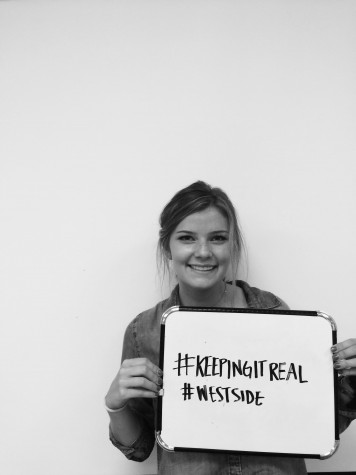
Molly Riebau is the Editor-in-Chief of The Highlander Newsmagazine. Aside from journalism, she loves watching The Bachelor (more than any...

